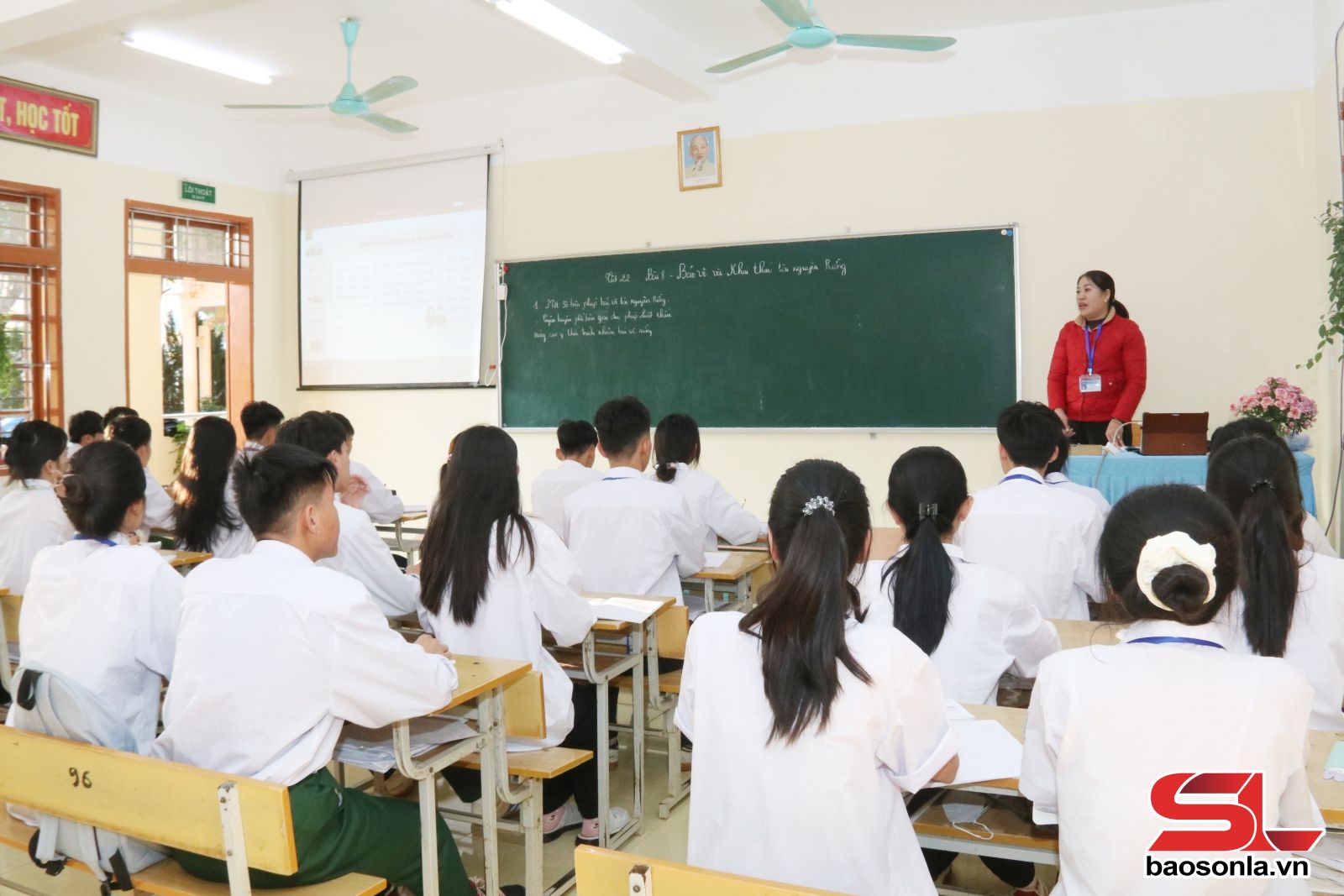
The efforts align with Project 5 on education and training development and workforce quality improvement under Programme 1719 - the national target programme for socio-economic development in ethnic minority and mountainous areas.

A class at Thuan Chau Ethnic Minority Secondary and High Boarding School.
From 2021 to 2025, Son La is executing 14 projects funded by Programme 1719 to upgrade and build classrooms, boarding and semi-boarding dormitories, and purchase teaching and living equipment for ethnic minority boarding and semi-boarding schools, and others with semi-boarding students. The investments include upgrades to 17 teacher housing units; 269 student dorm rooms; 68 classrooms; 13 dining halls and kitchens; 13 sanitation facilities; and 53 auxiliary structures. Equipment for teaching and student activities has been supplied to 175 boarding and semi-boarding schools, while literacy programmes have reached 3,533 ethnic minority residents. Total spending exceeded 500 billion VND (19 million USD).
To date, 72.9% of schools and classrooms in the province have been built to permanent standards, more than 93% meet minimum infrastructure requirements, and 77.6% have achieved national accreditation. All boarding and semi-boarding, and those with semi-boarding students across the province have received investment to upgrade facilities, ensuring adequate classrooms, dormitories, and sports areas.
Efforts to expand education in ethnic minority areas have helped raise literacy levels and gradually narrow regional gaps. Currently, 99.6% of five-year-olds attend kindergarten; 99.7% of school-age children are enrolled in primary school; and 98.7% of secondary-age students are in class. About 94.8% of residents aged 15 and older are literate in the national language. Over the past three years, the pass rate for the high-school graduation exam at ethnic minority boarding schools has approached 100%, with 55% of students moving on to universities and colleges and nearly 30% entering professional secondary or vocational programmes.

An official in Phieng Pan commune transfers coffee-growing techniques to residents of Ot Cha hamlet.
Vocational training under Programme 1719 continues to be strengthened at local training institutions, linking education to the practical development of regional industries. Preferential admission policies for ethnic minority and mountainous students expand lifelong learning opportunities, raise the share of skilled labour, and support a sustainable shift in the workforce structure.
From 2022 to 2024, the province trained 58,408 labourers across university, college, intermediate, and elementary levels, including short-term courses under three months, technology transfer, and workforce training in industrial zones. Over the past 10 months, 8,855 labourers have secured stable employment both within and outside the province.
Through preferential policies for ethnic minority areas, particularly in education and vocational training, the province has gradually improved workforce quality, leveraged human resources among ethnic minority communities, and supported local socio-economic development.






















You have 500/500 characters left
Please enter 5 or more characters!!!